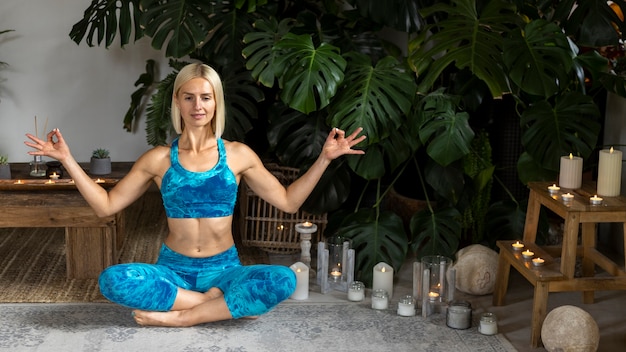

An elderly friend once told me, “Aging isn’t for the faint-hearted.” She was mostly referring to the physical challenges like aches, pains, and the difficulty in doing things that used to be easy. On top of that, we often feel self-critical about our changing appearance, as if it’s a sign of weakness, when it’s actually just a natural part of life. Aging isn’t a flaw in our personality; it’s simply part of being human.
Buddha often spoke about aging, describing it as a form of dukkha, which means suffering or unsatisfactoriness. He also mentioned how we become obsessed with youth, believing that we’re somehow different from older individuals, and ignoring the fact that we’re all part of a continuous journey. This obsession with youth can make it hard to accept the reality of aging.
Today, I led a meditation in front of my bathroom mirror, and I’d like to share it so you can try it too. To begin, you’ll need a well-lit space where you can see yourself in a mirror, ideally your face and upper body. Bright lighting is essential because dim light can confuse your brain’s visual circuits, causing odd illusions. Find a comfortable position, whether sitting or standing.
We’ll meditate with our eyes open. Relax the muscles around your eyes, avoiding a fixed stare, and let your focus be gentle. Let your eyes wander softly over your reflection. As you do this, notice the sensations of your breathing, possibly seeing your breath’s rise and fall in the mirror.
Allow your eyes to be kind, recalling what it feels like to look with kindness. You might even see that kindness reflected back at you. Most of us judge our own appearance more harshly than we do others, focusing on blemishes, wrinkles, gray hairs, and less firm skin. But when we see these traits in others, they’re just part of their appearance. We often find such features beautiful in others and can do the same for ourselves.
Try appreciating the texture and details of your own appearance without judgment, as you would for someone else. You can even say words of appreciation to yourself. For example, upon seeing a wrinkle or gray hair, you can think, “How beautiful that is! This is a sign of being human!” Repeat this a few times.
Also, say to yourself as a whole, not just to a specific feature, “Aging is a natural part of life. May I face it with grace and dignity.” Repeat this several times. Another helpful phrase is, “May I support myself with kindness as I age.” Repeat this a few times as well.
Continue this practice for the duration you’ve chosen to meditate, always looking at yourself with kindness and acceptance, appreciating the signs of aging and other so-called imperfections.
This meditation follows the “Sitting With Bodhi” style. The recording is ten minutes long, but you’re encouraged to meditate longer. It’s best to set a timer for at least 15 minutes before beginning.
This meditation is one of the recordings for Wildmind’s sponsors. For more information, visit Wildmind’s community platform.